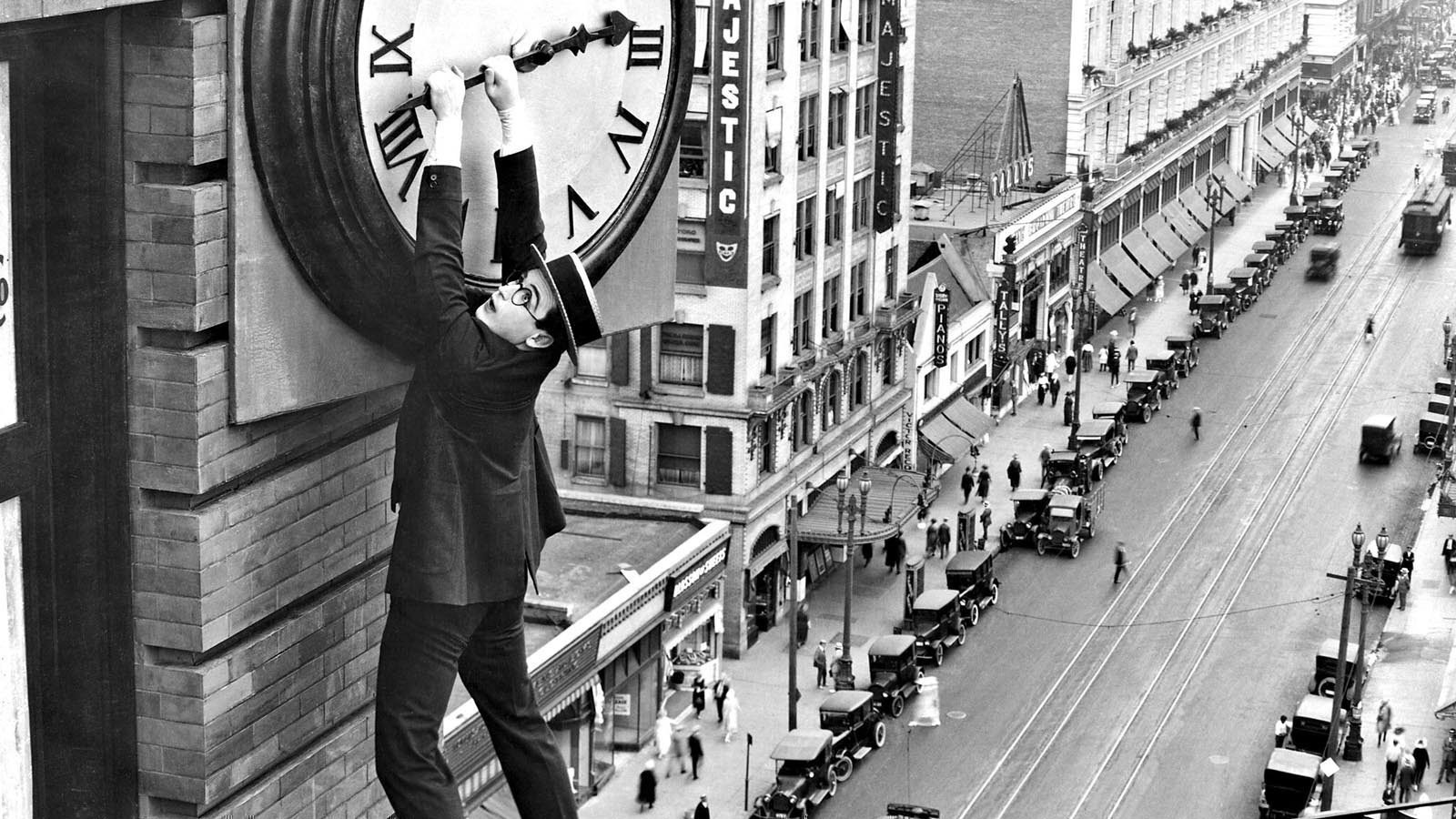Thrills and Chills

“It’s official,” Cannes announced on Friday morning. Martin Scorsese’s Killers of the Flower Moon, starring Leonardo DiCaprio, Robert De Niro, Jesse Plemons, and Lily Gladstone, will premiere at the festival before opening in theaters in October and eventually landing on Apple TV. Cannes 2023 will open on May 16 and run through May 27.
- Today marks the hundredth anniversary of the premiere of Safety Last!, starring Harold Lloyd as a clerk who aims to impress both his girlfriend and his boss by climbing a twelve-story building. The sequence that has Lloyd dangling from a clock on the top floor above the bustling streets of Los Angeles is, of course, one of the most famous in all of silent cinema. The centennial will be celebrated with screenings at the Slapstick Festival in Bristol and at Picturehouse Cinemas across the UK and with Harold Lloyd programs at Film Forum in New York and on the Criterion Channel.Pamela Hutchinson not only puts Safety Last! on her annotated list of ten great films of 1923 for the BFI but also talks with Lloyd’s granddaughter, Suzanne Lloyd, who remembers first seeing the film when she was ten: “My palms were sweating, and I was like: ‘God, this is dangerous. This guy’s crazy.’”
- The new Brooklyn Rail features Edward Frumkin on the work of Fox Maxy, whose Gush screens this weekend at New Directors/New Films; Nolan Kelly on Daniel Antebi’s God’s Time (2022); akané okoshi’s conversation with Cauleen Smith about Drylongso (1998); and Jake Romm on Dziga Vertov: “At the end of The Work of Art in the Age of Mechanical Reproduction, Walter Benjamin states: fascism seeks to aestheticize politics, ‘communism replies by politicizing art.’ Vertov was the embodiment of the reply, but since his radical vision for film was swept asunder by the vicissitudes of history, and since the effort to claw back cinema’s emancipatory potential remains always on the horizon, the world has been largely and increasingly living in fascism’s aesthetic vision.”
- Kenji Mizoguchi’s Ugetsu opened in Japan seventy years ago this week, and Sight and Sound has republished a piece from its spring 1962 issue in which Eric Rhode wrote that the film is “an essay in the uncanny: that is, it preserves a surface of ordinary everyday happenings whilst at the same time creating a childhood world of animistic fears, so that the predicaments of the characters are plausible both in naturalistic terms and in terms of the rich, more obscure movements of the mind.”
- Nicolas Rapold doesn’t have much of a hook to hang an interview with Charles Mudede on, which makes Screen Slate’s publication of their conversation all the more refreshing. While e-flux will publish People of the Universe, collection of Mudede’s essays in August, and recently streamed Zoo (2007), the film he cowrote with director Robinson Devor, the focus here is on their first collaboration, Police Beat (2005), which isn’t on any repertory schedule at the moment. Mudede, a senior staff writer at the Stranger, had been writing his “Police Beat” column since 1999, and it was, as Mudede says, anything but “a traditional police blotter . . . I would use something where two lovers were fighting and one threw a bird cage at the other. And then I speculated about the bird in the cage.” Rapold and Mudede’s chat bounces from Proust to Derrida to Andor, which Mudede proposes is “worthy of a little Marxist analysis, right?”
- “Thirty-eight years before winning the Academy Award for Best Actress, Michelle Yeoh began her career as a leading lady by slamming a heavy book of Michelangelo paintings shut on a trench-coated flasher’s junk in the nutty 1985 Hong Kong thriller Yes, Madam!” That’s how Sean Burns pops open his review of Corey Yuen’s movie at Crooked Marquee. Further in, he notes that “the completely berserk final blowout is dominated by Yeoh and [Cynthia] Rothrock making mincemeat of masculine morons, including a guy with a Rambo headband and Borat mustache who meets a particularly prickly end. The sequence reportedly took thirty days to film and I don’t want to guess what the budget line item for candied glass was on this picture, because they break pretty much all of it.”



